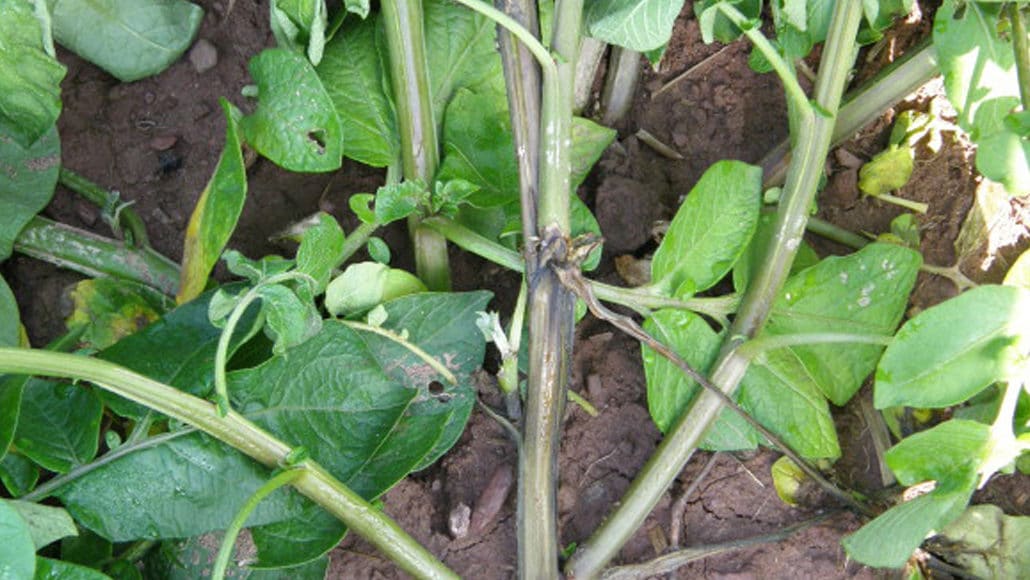A researcher at the University of Lethbridge has received a three-year grant from Alberta’s Results Driven Agriculture Research (RDAR) to look into management strategies for blackleg in potatoes, the university says in a news release on April 27.
Michele Konschuh, a research associate in the department of biological sciences at the U of L is the lead on the project. She is working with Larry Kawchuk and Jonathan Neilson from Agriculture and Agri-Food Canada on the project, the release says.
Blackleg is a seed-borne disease which is caused by Pectobacterium and Dickeya bacteria. It causes blackening of the potato plant and can reduce yields by 20 to 25 per cent, the release notes.
“We absolutely have blackleg, but blackleg is a lay person’s term for the disease,” explains Konschuh in the release. “The one we have in Alberta is caused by Pectobacterium species and it’s fairly common in all potato-growing regions. At this time, we have no Dickeya and we want to keep it that way.”
There are no pesticides available for blackleg prevention, so seed growers rely on agronomic practices including cleaning and sanitizing equipment between seed lots, cleaning storage units and rotating crops, the release says. It can remain dormant in potato tubers and if planting is done under cool, wet conditions it will appear.
“We want to develop solutions both to prevent that latent infection and also to address the disease in the field,” Konschuh says.
The researchers plan to use a multi-pronged approach which includes an information campaign outlining best practices for seed growers and sharing findings from their research. They also plan to investigate the rapid diagnostic tools available on the market and potentially develop additional tools to detect blackleg early, the release says. Such tools would allow producers to obtain a diagnosis when they see a suspicious plant in the field instead of having to wait for laboratory results.
They will investigate the potential of biocontrol agents — bacteriophages and endophytes. Bacteriophages are viruses of bacteria which can kill or dissolve bacteria. Endophytes are organisms which live within a plant and can have beneficial properties, like the good bacteria who live in the gut, the release says.
Related Articles
New Tool to Detect Blackleg Disease in Potato has Widespread Application











